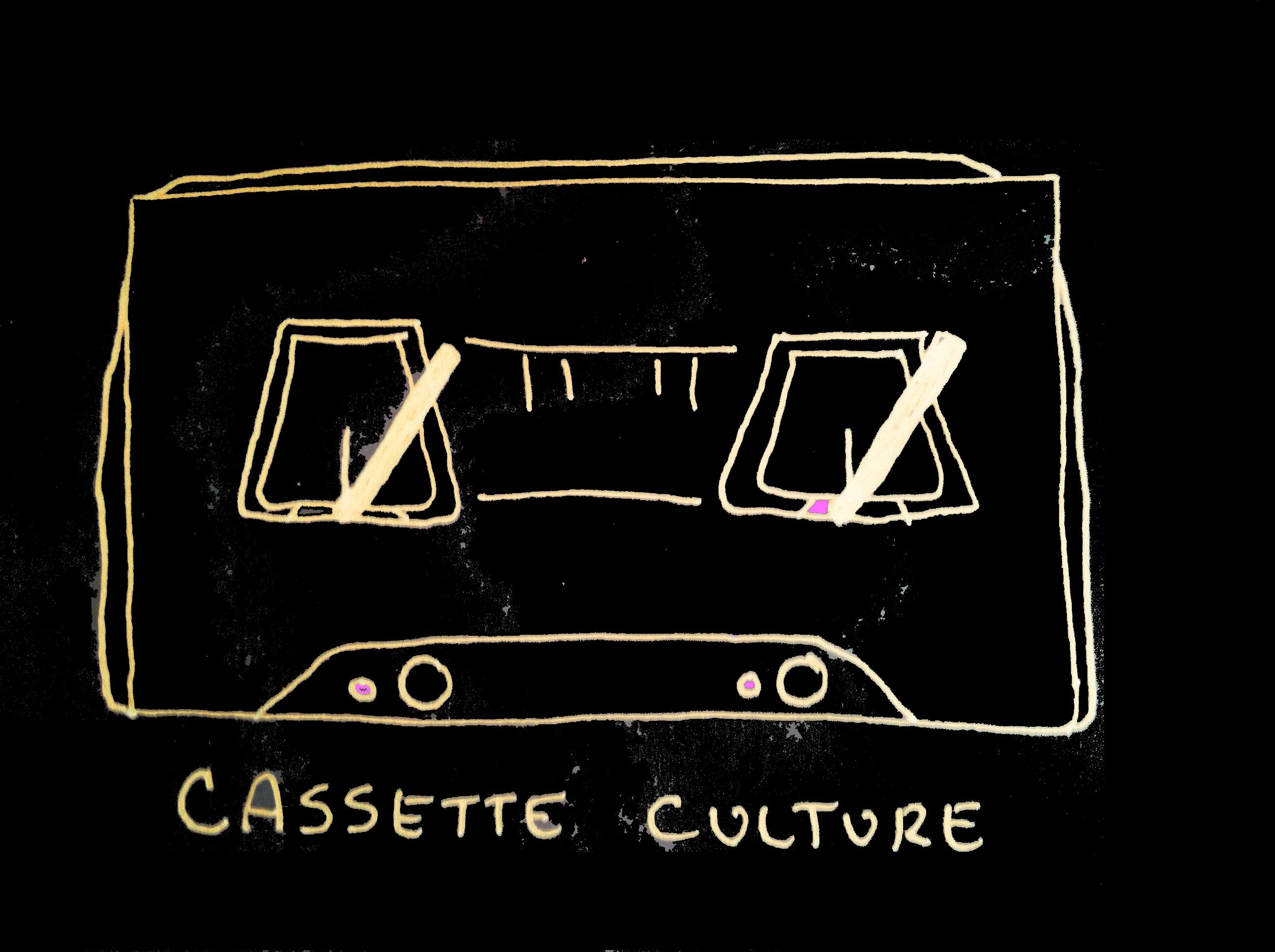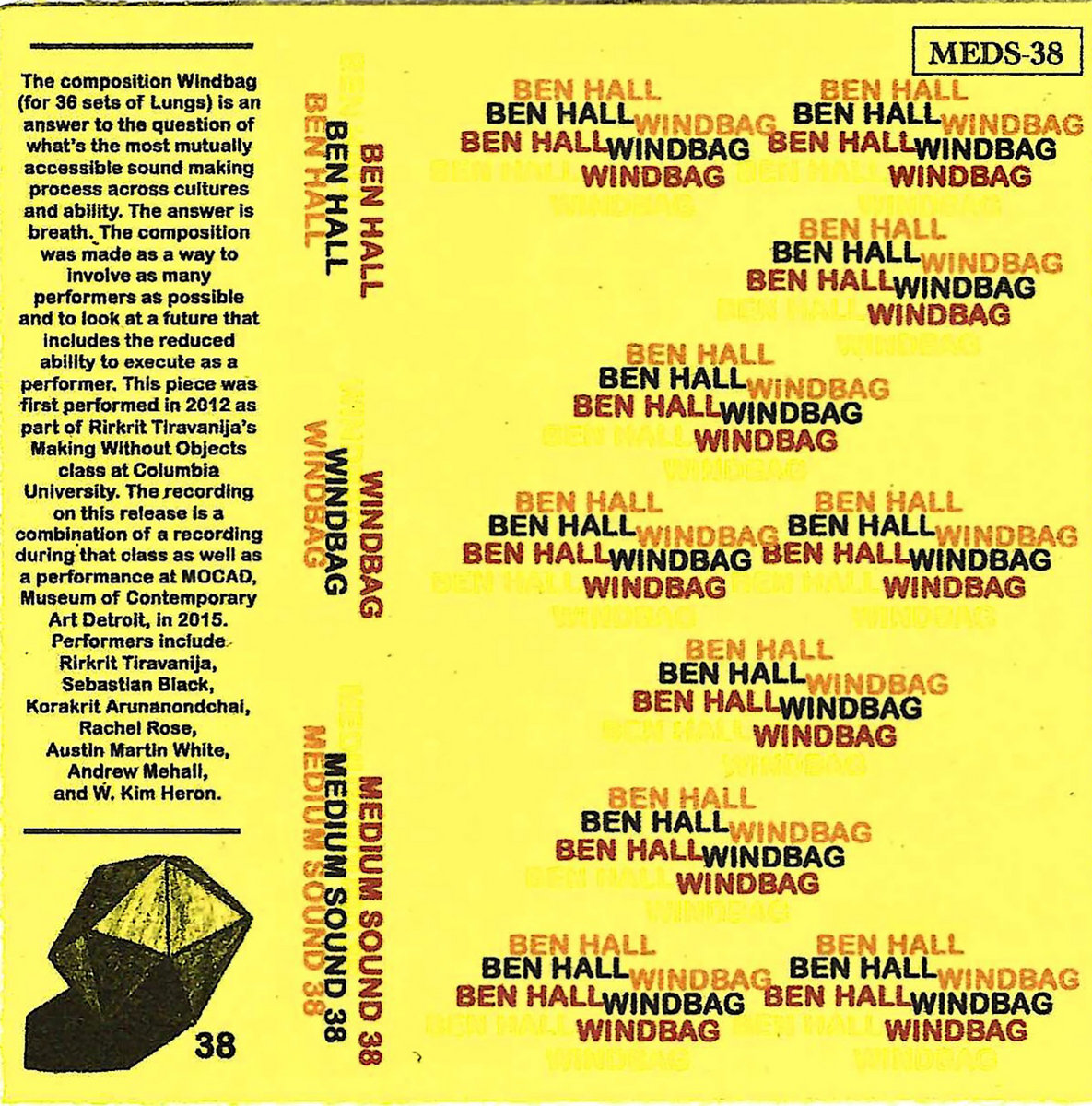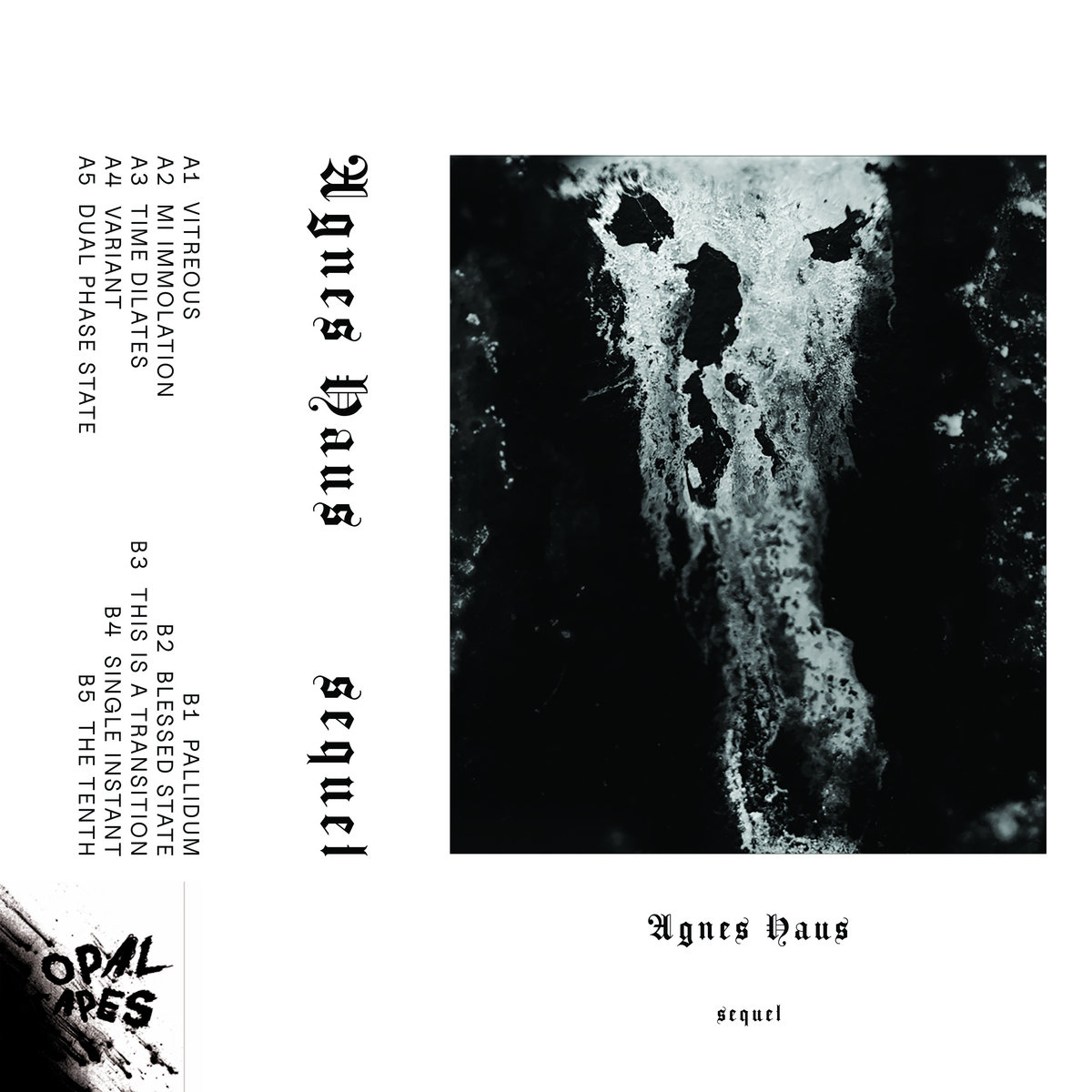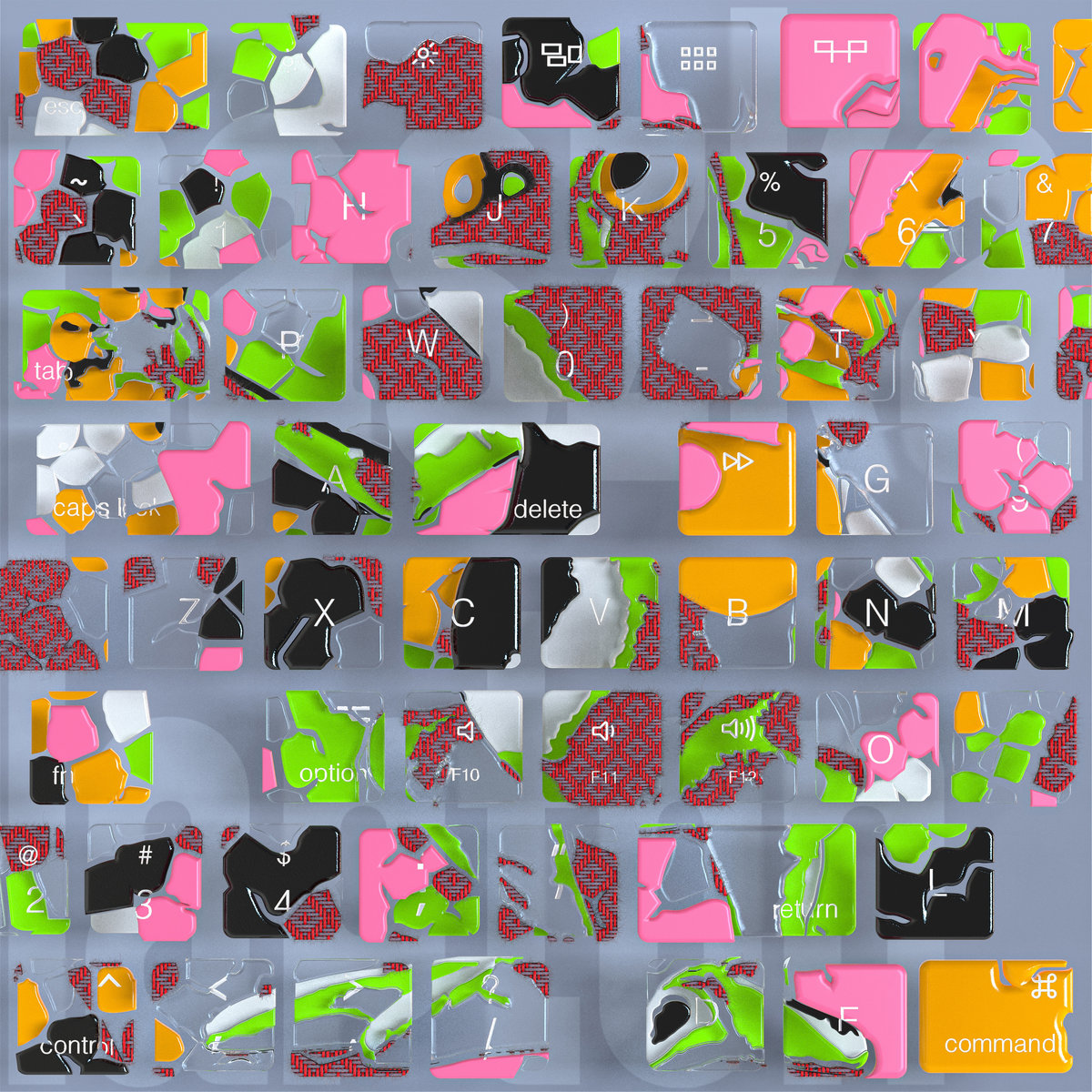Cassette Culture is a monthly column dedicated to exploring the various artists that inhabit the expansive cassette market. Drawing from bands and labels around the world, this column will attempt to highlight some of the best artists and albums from this global community.
 Heejin Jang
Heejin Jang
Me and the Glassbirds
(Doom Trip Records)
Korean producer Heejin Jang revels in sound manipulation, the mutated impulses of her own creative processes, and the ways in which they change in relation to one another. Her new album, Me and the Glassbirds, is a beautiful, serene, and, at times, harrowing portrait of apocalyptic expression. As the world around us seems to dissolve further into division and chaos, Jang utilizes both brutal and tranquil electronic atmospheres and temperamental percussive elements to document the gradual social and emotional collapse surrounding her at any given moment. She possesses an unnerving ability to harness the wild graces of her creative instincts, allowing them room to roam free of restraint or direction, even as periods of restorative calm appear and retreat without warning.
The album resists any conventional approach, refusing to adhere to formulaic genre labels or even allowing for much in the way of concrete associations. These sounds are more tactile, more attuned to physical experiences. By melding familiar sounds with those clearly designed to challenge our senses, Jang asks us to engage with her and the music in ways we’re not uses to, in ways that push us to consider her work on her terms instead of filtering through our own understanding. Not that she refuses to allow for personal interpretation; she’s just very insistent on giving the music time to bloom within its own ecosystem, leaving any baggage we may bring with us outside. We’re led through various encounters, each more elusive and mesmeric than the last – until finally, when all has been revealed, Jang invites us to question everything that we’ve just witnessed.
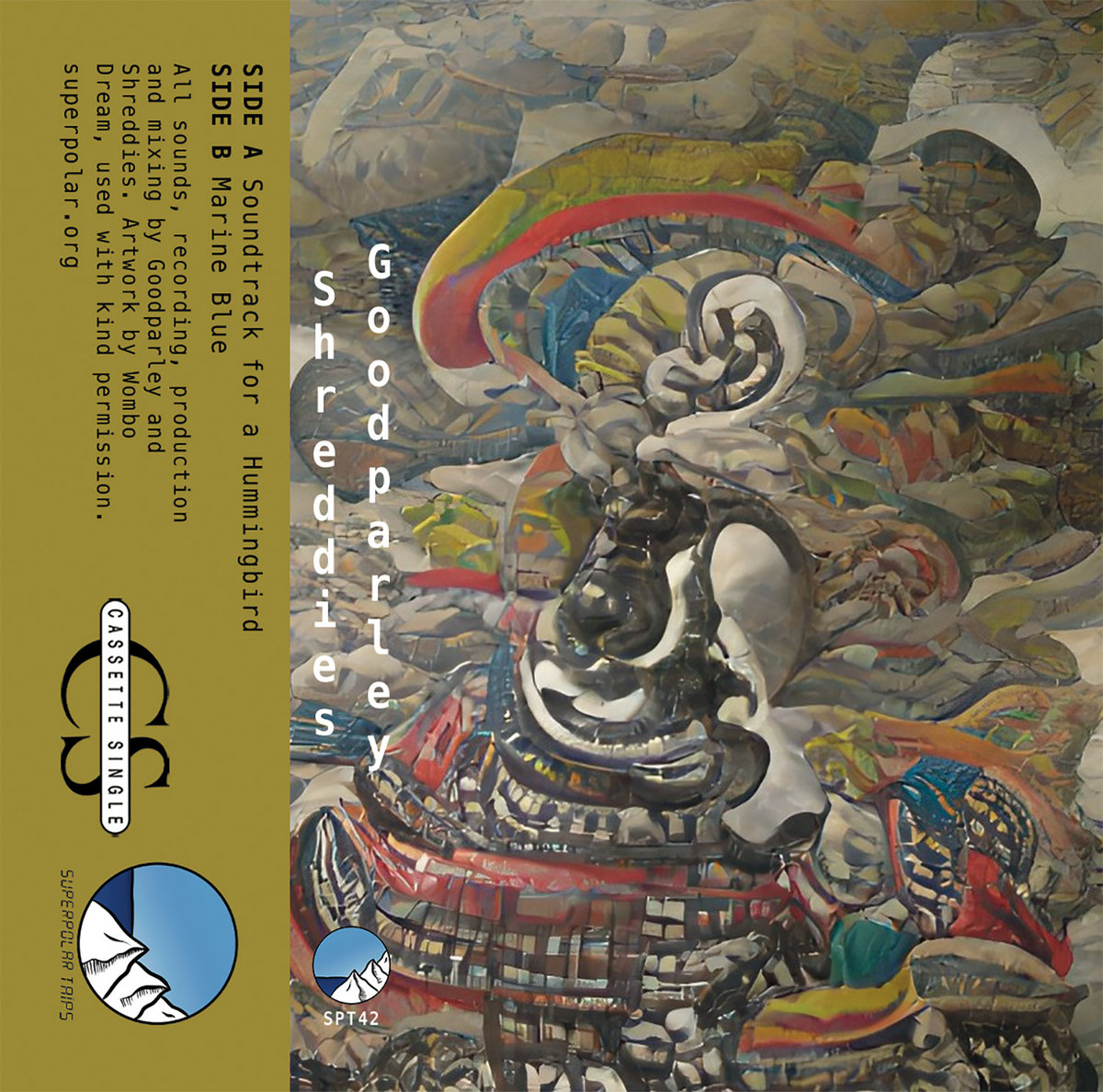 Goodparley & Shreddies
Goodparley & Shreddies
Soundtrack and Marine
(Superpolar Taïps)
Cassingles are alive and well in the world of Germany’s Superpolar Taïps, a small label focusing on experimental pop music. During the various COVID lockdowns, the label invited various artists to collaborate and contribute to this ongoing tape series. For Soundtrack and Marine (Cassingle #31), they brought together London-based musician Oli Richards (aka Goodparley) and Welsh artist Josh Dickins (aka Shreddies) to create two tracks of dreamy pop electrolysis. Whereas Richards fashions hypnotic tones from ambient guitar loops and sound manipulation hardware, Dickins molds electronic sounds into a series of diaphanous dancefloor revelations.
“Soundtrack for a Hummingbird” and “Marine Blue” showcase the strengths of each artist, with the former treading more familiar melodic waters and the later falling deeper into knottier circuital depths. They play off one another perfectly, drawing out the complicated histories that support Richards’ work and illuminating the synaptic impulses feeding the heart of Dickins’ music. Soundtrack and Marine works as an ideal starting place before delving deeper into either musician’s discography. A sublime realization of pop music that leans far left of center, this release allows you to hold on to that giddy sense of discovery that only comes when you find something truly special that you want to immediately share with anyone within earshot.
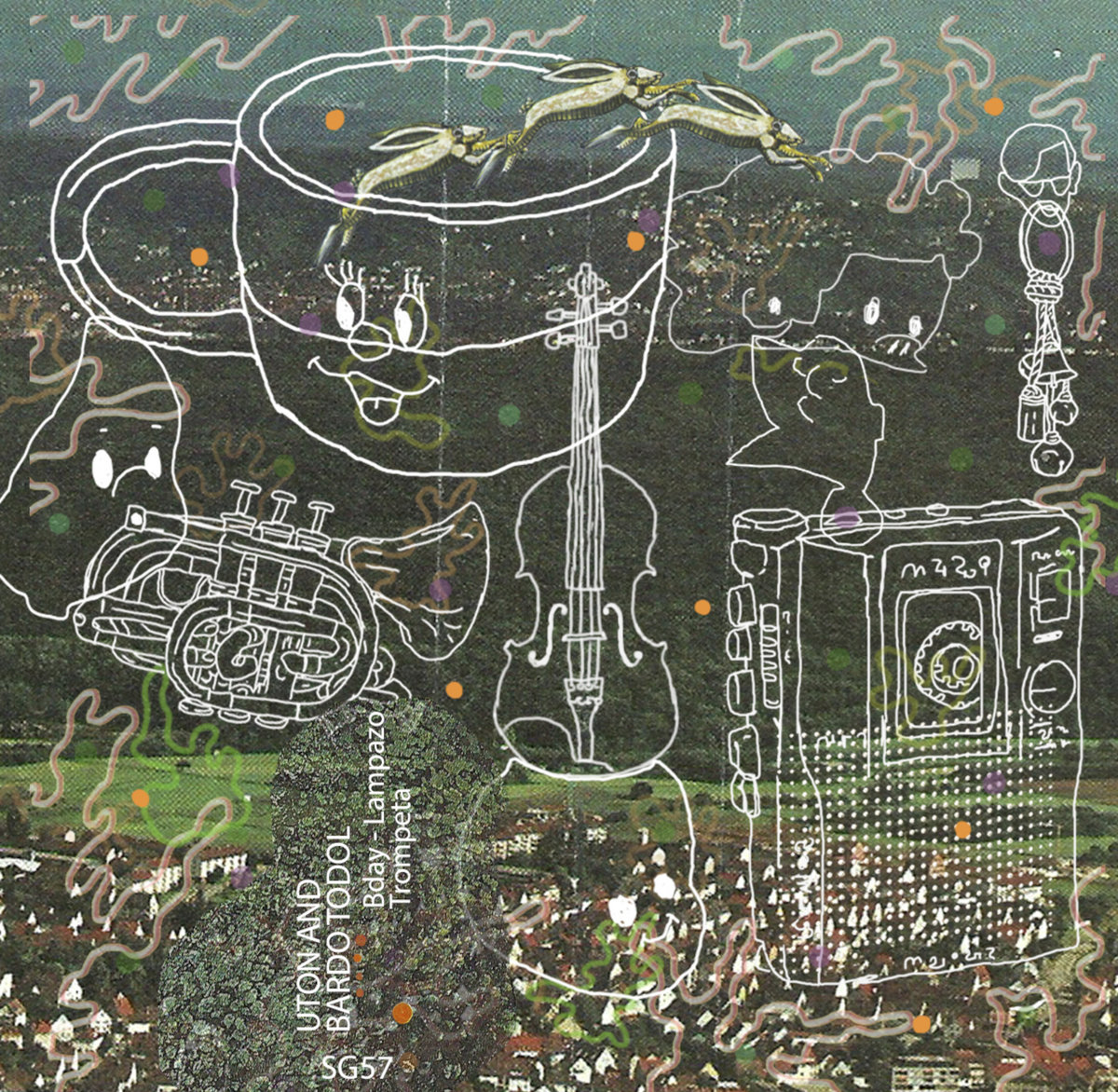 Uton & Bardo Todol
Uton & Bardo Todol
Bday Lampazo Trompeta
(Steep Gloss)
Some albums allow you to completely lose yourself in their weird wonders – and that certainly is the case with Bday Lampazo Trompetam, the new cassette collaboration from Uton (Finnish musician Jani Hirvonen) and Bardo Todol (Argentinian artist Pablo Picco). Filled with an assortment of acoustic instruments be-bopping around some field recordings made in Turku, Finland and Salsipuedes, Argentina, the tape conjures vast stretches of land adrift in various climes while they manipulate these sounds to create a dizzying array of emotional responses. Each song could be viewed as individual scenes on a movie or snapshots to be flipped through in a photo album.
Mixing in elements of free jazz, musique concrete, and some sort of fractured folk aesthetic, the songs act as living things, evincing exhalations backed by thudding hearts and tingling senses. They move and bloom, assert themselves and then withdraw, the music revealing no genre obedience. The deeper you descend into Bday Lampazo Trompeta, the wilder and more kaleidoscopic the atmospheres get, illuminating how the twin impulses of Uton and Bardo Todol compliment and feed off one another. As the last track gives way to silence, you’re left with the impression that you’ve witnessed an aural representation of nature’s expansive realms, and you’re anxious to immerse yourself once more as soon as possible.
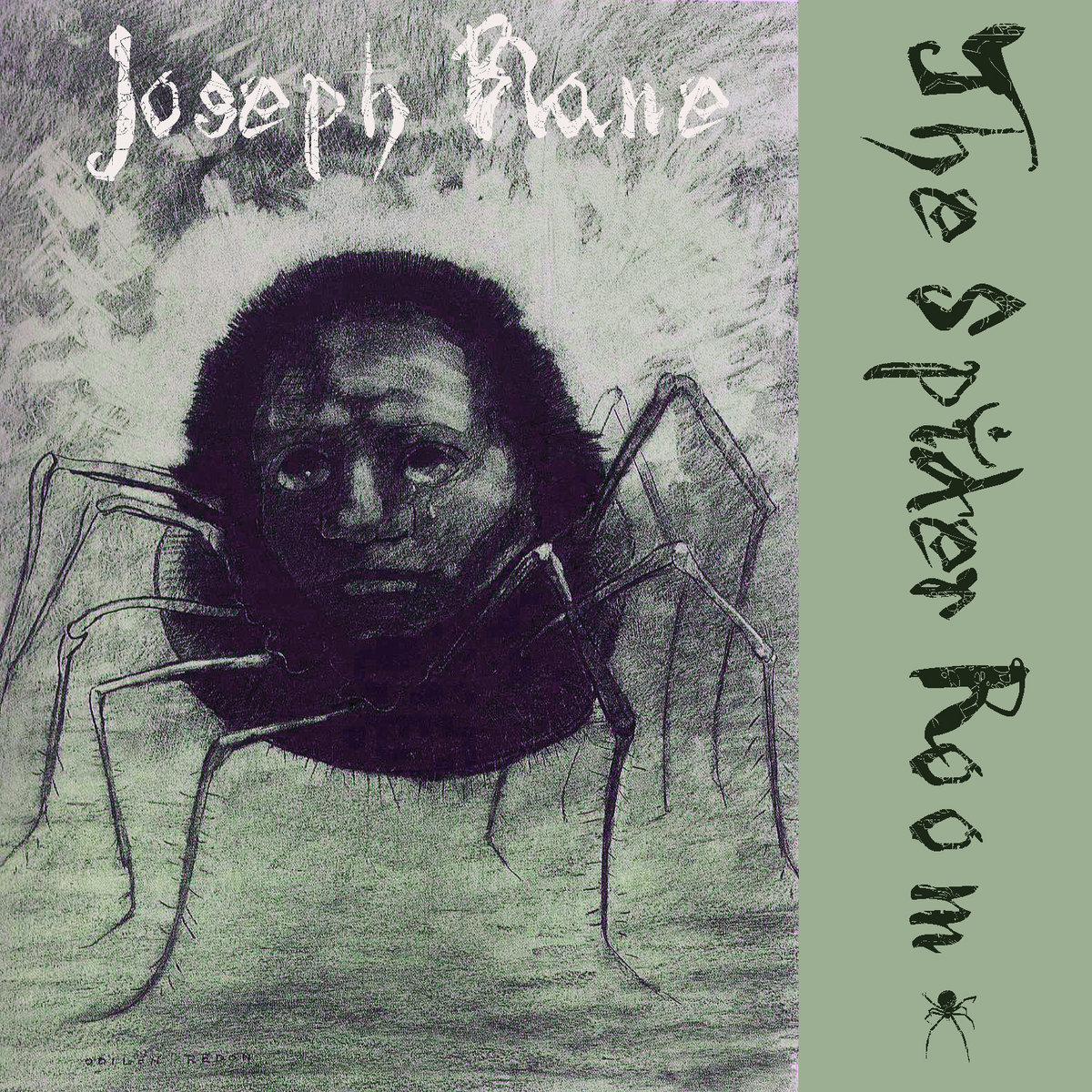 Joseph Blane
Joseph Blane
The Spider Room
(Submarine Broadcasting Company)
Joseph Blane’s The Spider Room is a perplexing and immersive listening experience, one that isn’t easily forgotten, lodging itself firmly in your subconscious for continued investigation. Released late last year – I’m only now discovering its wondrous oddities – this two-track release astounds in its improvisations, recorded in a derelict school building and molded from guitar loops and whatever instruments Blane found lying around in the deserted music room: “namely an old school piano, an out-of-tune violin, a filthy Irish flute, a smelly harmonica, a cracked glockenspiel and a percussive egg.” Overdubbing the guitar parts with improvised performances from these forgotten musical tools, he fashioned “Part I / Beneath the Dust” and “Part II / Above the Dust”.
These two longform pieces act as profound statements on feelings of abandonment and the lack of concern for what we leave behind. Whether that was Blane’s intent or not is up for debate, but I get the sense that the neglected environment heavily dictated the direction of his spontaneous compositions. These songs are spooky, mysterious, even a bit soundtrack-y. Still, they remain compelling perspectives on situational creativity and odes to what can be accomplished when giving yourself fully over to the dictates of internalized creation. Blane may have let the music guide him, but The Spider Room feels like a singular statement from an artist in full control of all his wildly unpredictable instincts.
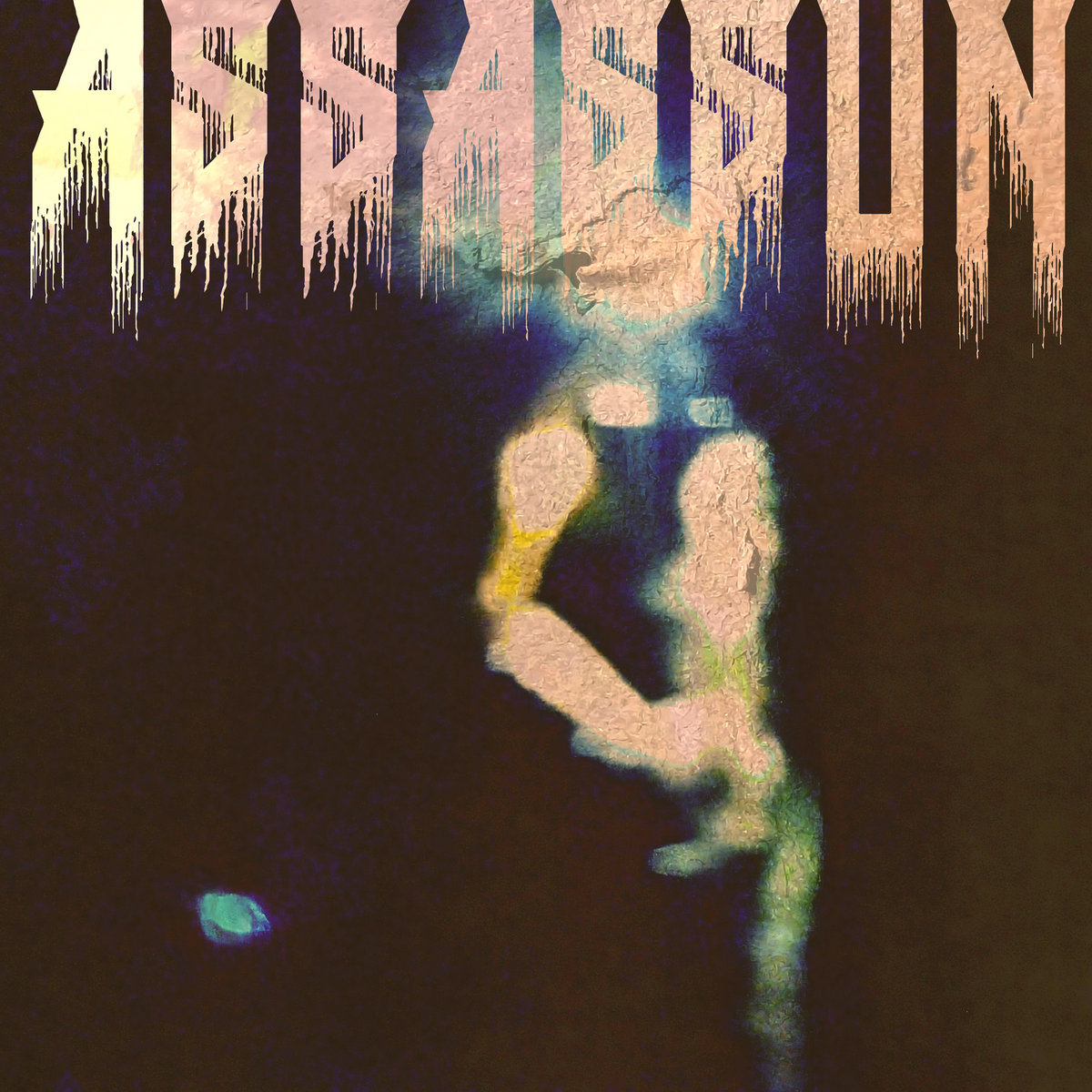 Assassun
Assassun
Chronic Quicksand Depression Morning
(Blackjack Illuminist Records)
Under the guise of Assassun, Berlin-based musician Alexander Leonard Donat ventures into synth-punk and Euro-goth territories as easily as crossing the street. His latest album, Chronic Quicksand Depression Morning, is an EBM monster, filled with wriggling beats, shouted vocals, and a desire to explore the gaudy contours of electronic pop’s theatricality. There’s a bit of camp in its emphatic rhythms, a sense of melodic mischievousness that can’t quite be explained but is an ever-present spirit guiding these songs. But Donat isn’t wallowing in pomp or needless opulence here – the music can hit like jackhammer while still causing its fair share of spontaneous bodily movement.
Taking the gloomy environments of New Wave and allowing them to blossom into deadpan expressions of emotional disassociation, he draws these sounds to their logical (and often extreme) conclusions, letting them twist and mutate without regard for their final iterations. Listening to these songs can bring to mind neon-streaked skyscapes and dingy club dancefloors packed at 2am. There is a constant movement inhabiting these tracks, a sensation of overt physicality that directs the music to slink down into the marrow of your bones. All I know is that after experiencing these songs, you’re likely to become overwhelmed by an irresistible desire to move your body through all manner of contortions – and to do so for as long as humanly possible.
Ben Hall sees our lungs as another instrument through which he can channel a fascinatingly diverse set of musical impulses. It all began with breath, and Hall wants to focus on the capabilities of these organs. His latest project, Windbag, is a single nearly 32-minute-long track that centers itself around the functions of exhalation. Hall explains: “This piece was first performed in 2012 as part of Rirkrit Tiravanija’s ‘Making Without Objects’ class at Columbia University. The recording on this release is a combination of a recording during that class as well as a performance at MOCAD, Museum of Contemporary Art Detroit, in 2015.” An ambient and impressionist sprawl that delves into themes of trance induction and kosmiche initiation, the album is a striking and compelling artistic assertion.
Best observed with eyes closed and senses attuned to its native frequencies, Windbag carries you aloft through its droning tonalities and search for primal emotional connectivity. “The composition ‘Windbag (for 36 sets of Lungs)’ is an answer to the question of what’s the most mutually accessible sound making process across cultures and ability. The answer is breath,” Hall reveals. Through these repetitive rhythms and murmuring echoes, he discovers a new musical language, one that operates on a sensory scale. You don’t simply listen to Windbag; you live your way through its winding rhythmic contours, finding revelation as each moment is unspooled and rewound before finally fading back into nothing.
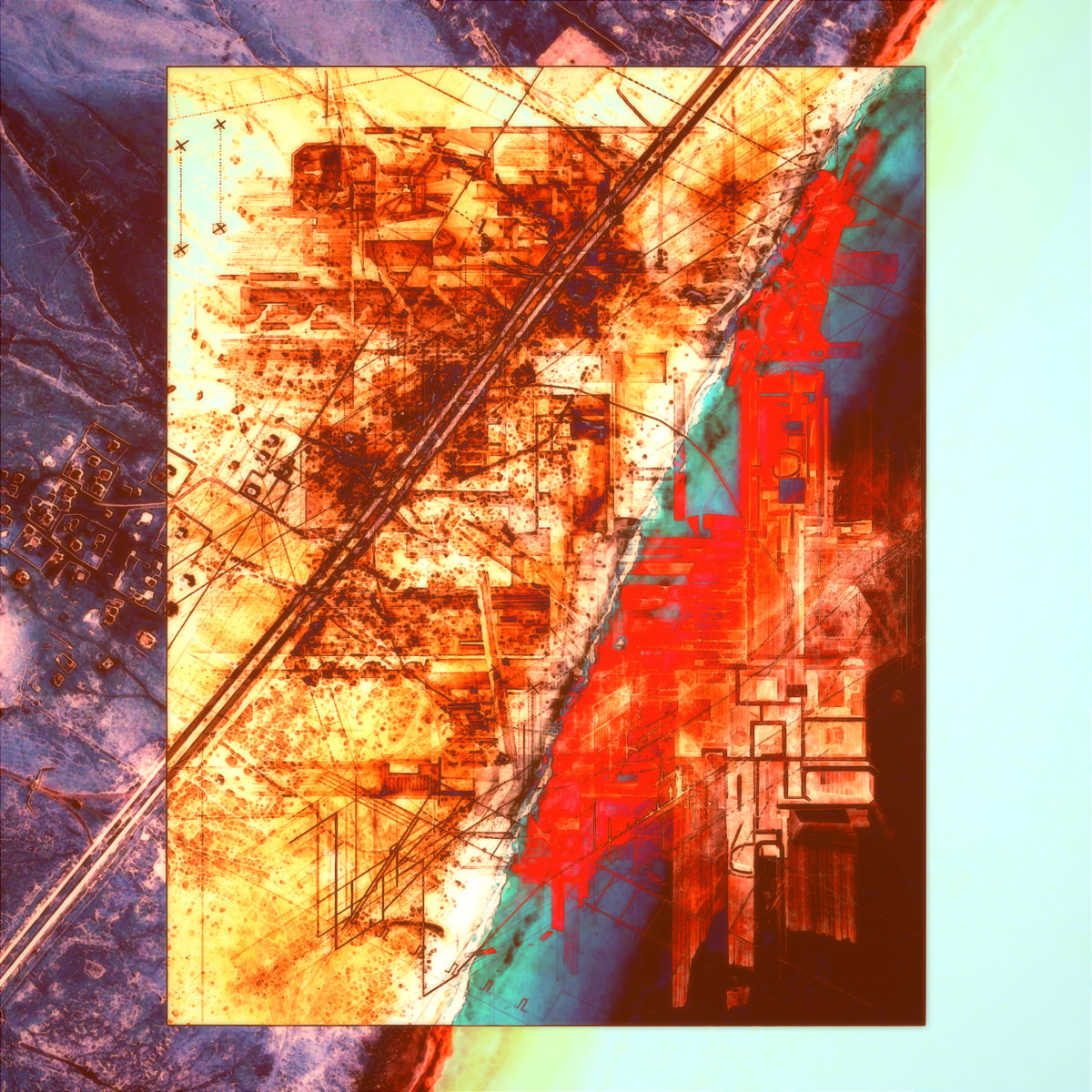 Ohr
Ohr
Luma/Chroma
(Sound as Language)
The work of Berkeley-based artist George Cory Todd is a tribute to the vast spectrum of digital production, allowing him to explore all aspects of visual and audio production, engineering, and performance. Recording as Ohr, Todd breaks down the barriers separating ambient, dub, techno, and even jazz, creating a sound as richly detailed as it is unclassifiable. With the release of Luma/Chroma, he further eschews known approaches to experimental music and douses everything in a gallons of drum ‘n’ bass nervousness. These songs rattle and reverberate within a tightly confined space, narrow in focus but expansive in interpretation.
Tempos vary wildly, consistent in their liquidity while offering the opportunity to explore emotional depths quite uncommon to the genre (or mash of genres). From simple metronomic percussion and electronic shivers to the formation of shapeless soundscapes that exhale a considerable solitude, Todd provides a compelling look at the complexity of this uncalibrated noise. Whether you feel as though you’re trekking through the innards of some great mechanical contraption or sweating out your insecurities on a darkened and cacophonous dancefloor, Luma/Chroma doesn’t limit you to one circumstance while enclosing yourself in its rhythms. These songs are effortlessly born from varying degrees of movement and recede back into those transitory substructures just as easily.
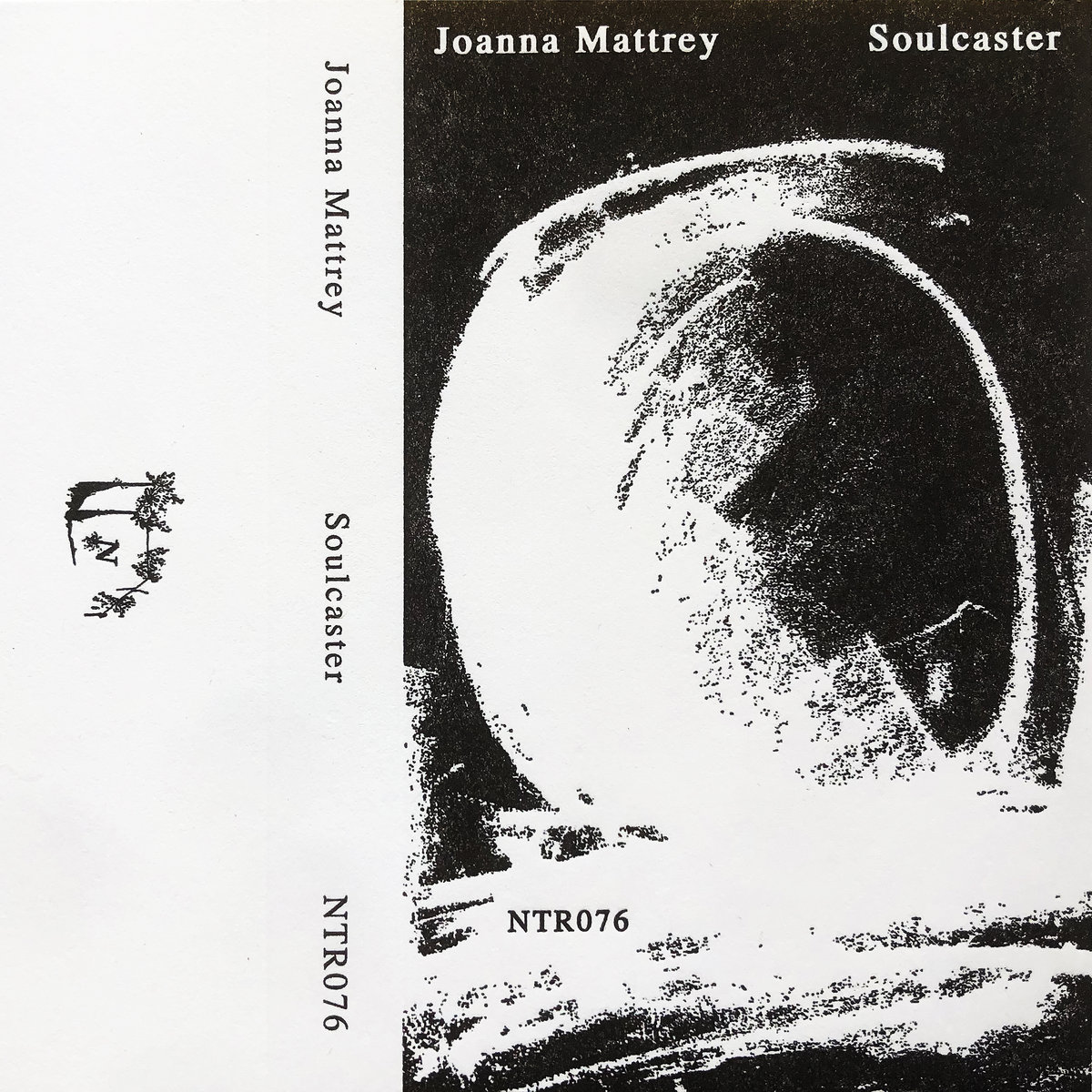 Joanna Mattrey
Joanna Mattrey
Soulcaster
(Notice Recordings)
The sounds that a viola can create are astounding, just ask John Cale — or alternately, ask Brooklyn-based composer Joanna Mattrey. Her mastery of, and symbiosis with, this instrument has allowed her to conjure great swathes of sound that linger like parallel dimensions of aural tacticity. Across her latest album, the fractured and harrowing Soulcaster, she practically dismantles the instrument and reassembles it as she sees fit. Along with a tromba marina (a triangular bowed instrument occasionally referred to as a marine trumpet or nuns’ fiddle), she creates and then filters these sounds through various preparations involving styrofoam, plastic toys, chains, and other unidentified objects, developing a perspective both reverent of its origins but also fully dedicated to the deconstruction of those same ancestries.
With a title taken from Brandon Sanderson’s book series The Stormlight Archive – which defines “soulcaster” as something capable of transforming one thing into another – it makes sense that Mattrey treats her viola in much the same way. At times, it sounds like she’s inviting into the cavernous maw of some mechanical monstrosity, gears grating and internal mechanisms turning asynchronously; alternately, there are moments when a rough beauty emerges, a terrible and haunting grace that lifts itself out of the noise of Mattrey’s subconscious. The album becomes less an exercise in strict technique and more an experiment in how to obliterate musical expectations and redefine the parameters of a given musical instrument.
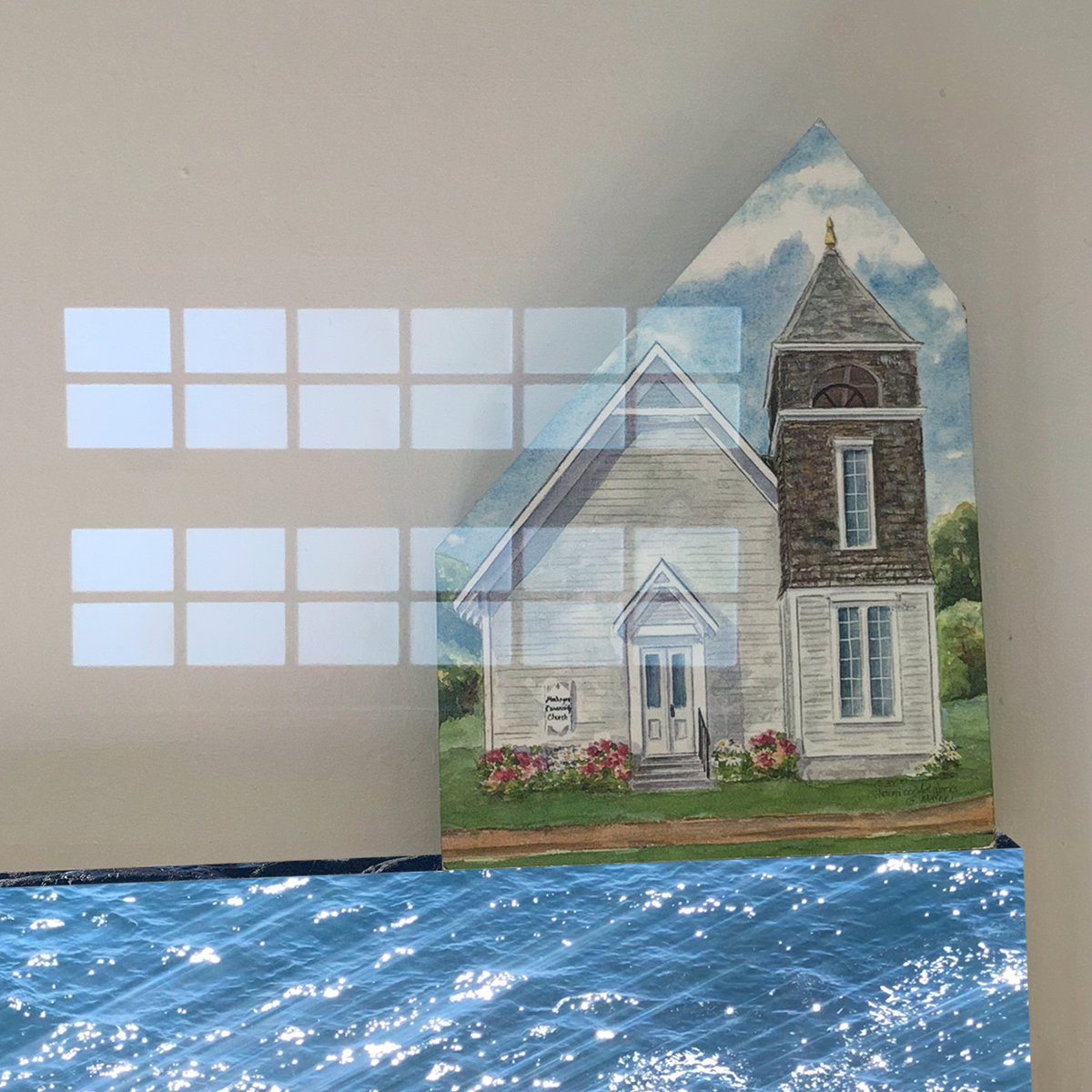 Evan Lindorff-Ellery
Evan Lindorff-Ellery
Church Recordings from Monhegan
(Full Spectrum Records)
Back in the summer of 2021, Notice Recordings co-owner and experimental musician Evan Lindorff-Ellery visited his family in Maine, and while he was there, he decamped to a Monhegan island off the coast where he visited the Monhegan Community Church. He developed a fascination with this physical space and decided to document his experiences there. Coming in the form of the two-track Church Recordings from Monhegan, Lindorff-Ellery created these longform compositions to allow us to hear what he heard, to feel what he felt. Using what he had on hand to further involve us in the church’s atmospherics, he employed clam shells, sea glass, books, a frame drum, an acoustic guitar, a small piano, metal links, wood, plastic, and even own bodily movements to detail the space in a way that resonates on a purely emotional wavelength.
Home to “Evening” and “Morning”, the album uses natural cycles as part of its creation. “Evening” was recorded as rain fell and light was fading away, giving it an elegiac feeling, of memories and experiences losing themselves in the past. Often no more than whisper, the track is a glimpse of a captivating environment suspended, held still by our attention and engagement. “Morning” – as you might have guessed – was recorded the following morning as early sunlight shone through the church windows. It doesn’t veer too far from the previous track in terms of its subtle movements, but it does exhibit a sense of renewal and of beginnings, of small moments heralding dramatic events yet to come. Church Recordings from Monhegan is gorgeous and incredibly nuanced in its execution but still presents a fully formed world for us to explore and investigate.
Brighton-based audio-visual artist Agnes Haus has an affinity for analog musical equipment and graphic design, and they find time to indulge in both of their creative affections as they create various fractured electronic landscapes and construct painterly images both euphoric and beautifully harrowing. For their debut album, they offer Sequel, a 10-track collection of noisy atmospherics that balance between more melodic ruminations and those which possess no known rhythmic frameworks. Minimalism and something approaching splintered electro-pop are the foundations here, with Haus inviting conflicting and sympathetic divinations which speak to the music’s inherent emotional malleability.
Whether appearing to soundtrack some gothic silent film or fashion an aural meditation on internal mental disorientation, Sequel doesn’t strive to provide answers – it discovers questions we’ve yet to answer and demands that we consider the possible avenues through which answers might be found. The entire album feels a bit like a Rorschach test, one giant impressionist pattern designed to test our musical acuity and emotional associations. You can ether succumb to its hypnotizing (and often aberrant) rhythms or engage with them, working to discover the interior mechanisms propelling these sounds forward. There’s no room for passive observation here; you participate, or the music leaves you behind without so much as a second glance.
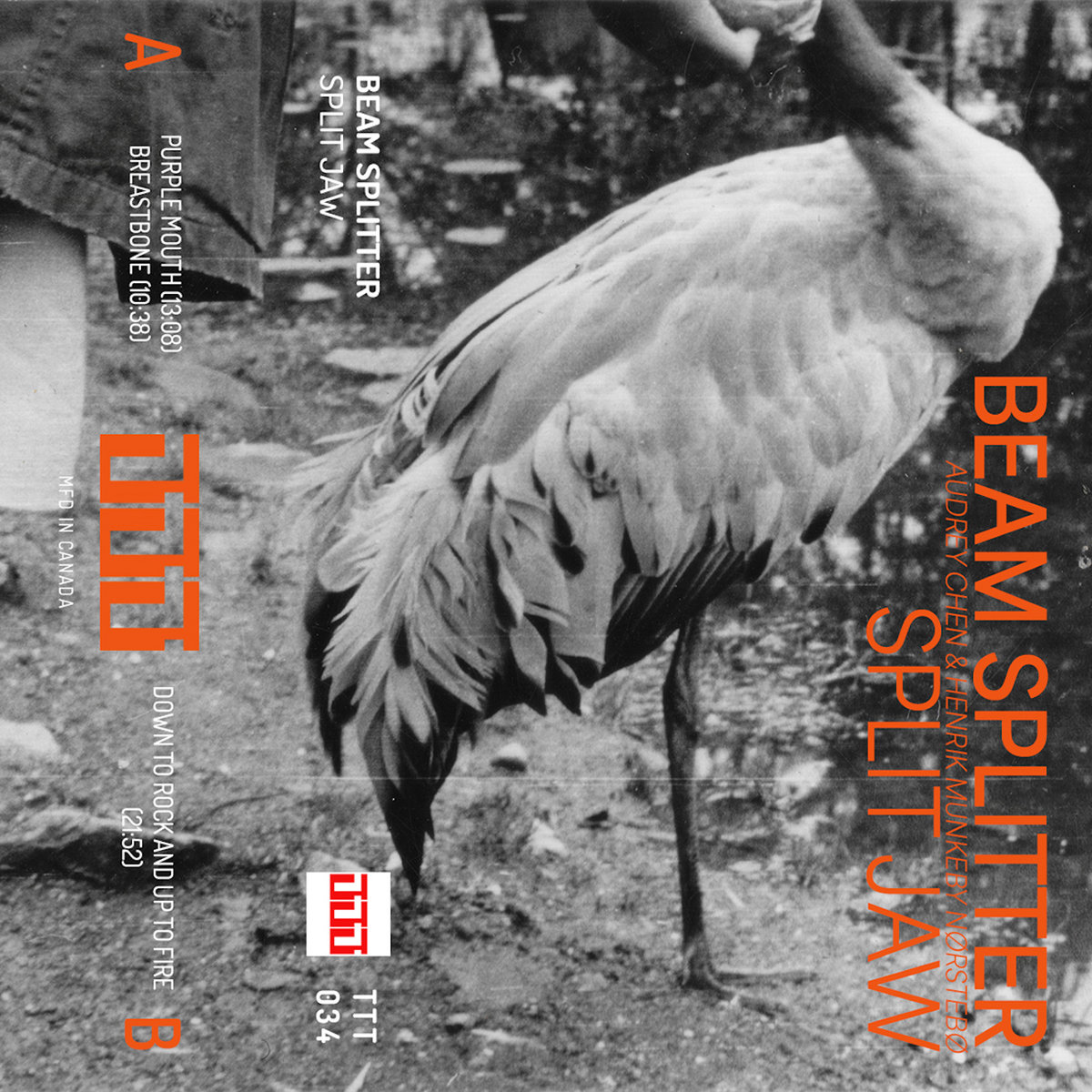 Beam Splitter
Beam Splitter
Split Jaw
(Tripticks Tapes)
Beam Splitter is the method through which musicians Audrey Chen and Henrik Munkeby Nørstebø utilize amplified voice, trombone, and analog electronics in service to their ever-spiraling musical impulses. On their latest tape release, Split Jaw, the duo offers both studio and live material, combining the reality-warping minimalism of “Purple Mouth” – developed as part of the project “OMA”, with support from Initiative Neue Musik Berlin – with the live performance improvisation of “Breastbone” and “Down to Rock and Up to Fire”, recorded at the Festival Music Unlimited in Wels, Austria in November of last year. These three tracks showcase the band’s knack for conceptual experimentation, for turning dissociative sounds into something revelatory and in need of further analysis.
But there is more to Split Jaw than just clinical evaluations – the music allows you to explore without regard for genre histories, giving you complete freedom to approach the music on its own terms. Just when the silence of a given moment here becomes unbearable, you hear some faint glimmer of movement, some scared sound from the edge of your awareness, making no more than a whisper. And still, that whisper contains multitudes. Whether in the studio or on some improvised stage, Chen and Nørstebø make use of this rhythmic/arrhythmic austerity, giving voice to their twin creativities through this wonderfully fragmented noise. It’s both challenging and inviting, an aural conundrum waiting to be solved, ready to offer one last hint at what drives these two artists to create these abstract environments.
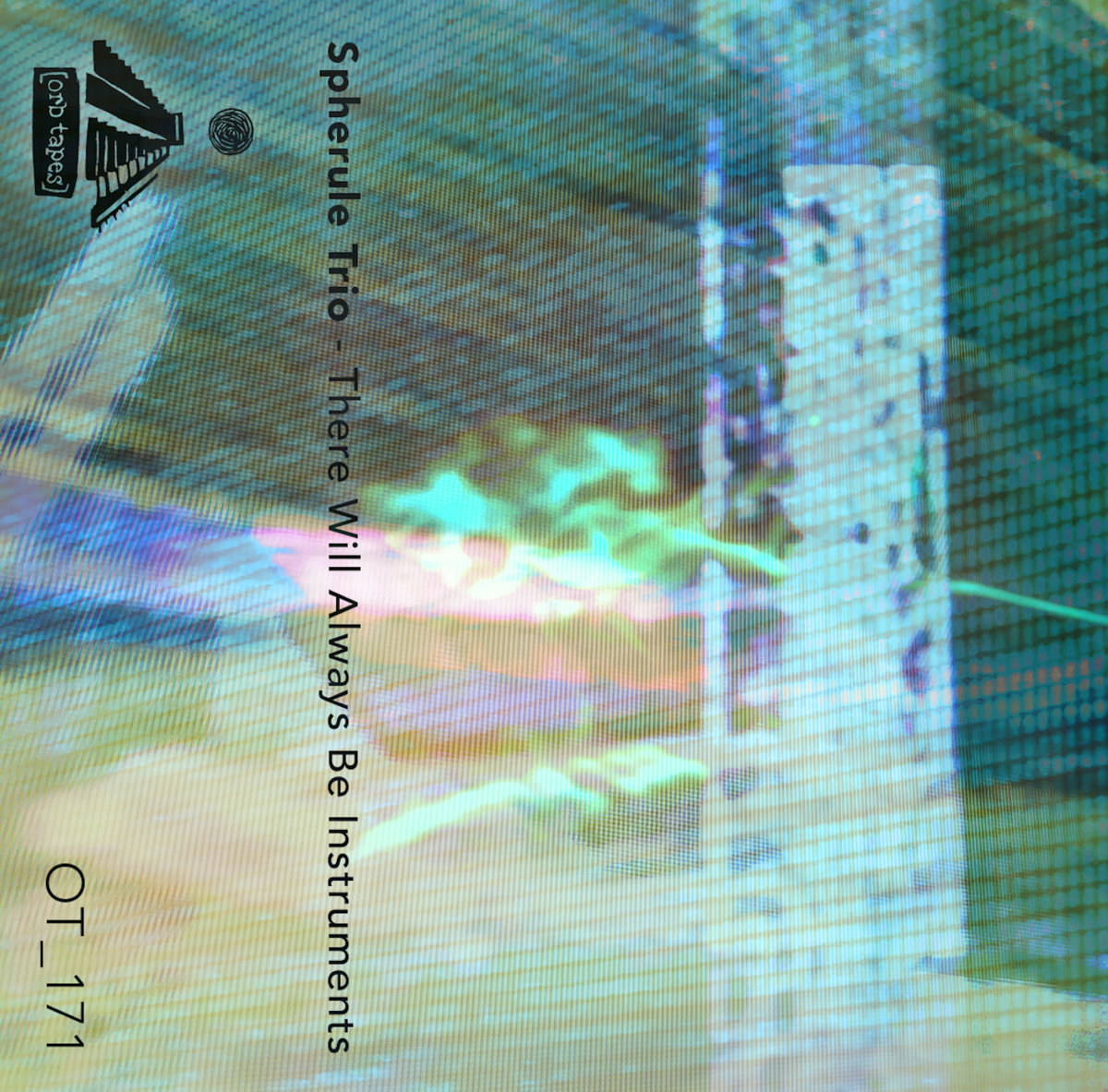 Spherule Trio
Spherule Trio
There Will Always Be Instruments
(Orb Tapes)
Consisting of Patrick Shiroishi on saxophone, Kevin Sims on percussion, and Lucas Brode on guitar (and screwdrivers, apparently), Spherule Trio make music that hovers somewhere between direct improvisation and guided spontaneity. There Will Always Be Instruments in their debut album, recorded remotely throughout 2021 and now finding release via Orb Tapes. The songs were built piecemeal, with each musician adding to what was sent to them, directed by various visual aides used as cues for how the music should evolve. There was a general path established but the sounds were all improvised, resulting in a 4-track set that vacillates between chaotic bouts of experimentation and moments that feel restrained and even introspective at times.
To fall into the noisy chasms of these songs is to embrace the fractured nature of the artists’ collective inspirations, to surround yourself in a vast lattice of clashing rhythms and conflicting emotional catharses. Shiroishi’s sax warbles and honks and whispers, while Sims creates a clattering atmosphere of splintered percussive admonishments. Brode interjects a bit of necessary agitation, placing distance between each person, allowing no one to remain in the spotlight for a prolonged period of time. These songs are all about collaboration, not individualism – There Will Always Be Instruments looks inquisitively at the creative impulses behind the music, reveling in the interplay of each person, aspiring to discover the hidden mysteries that fuel their desire to create.
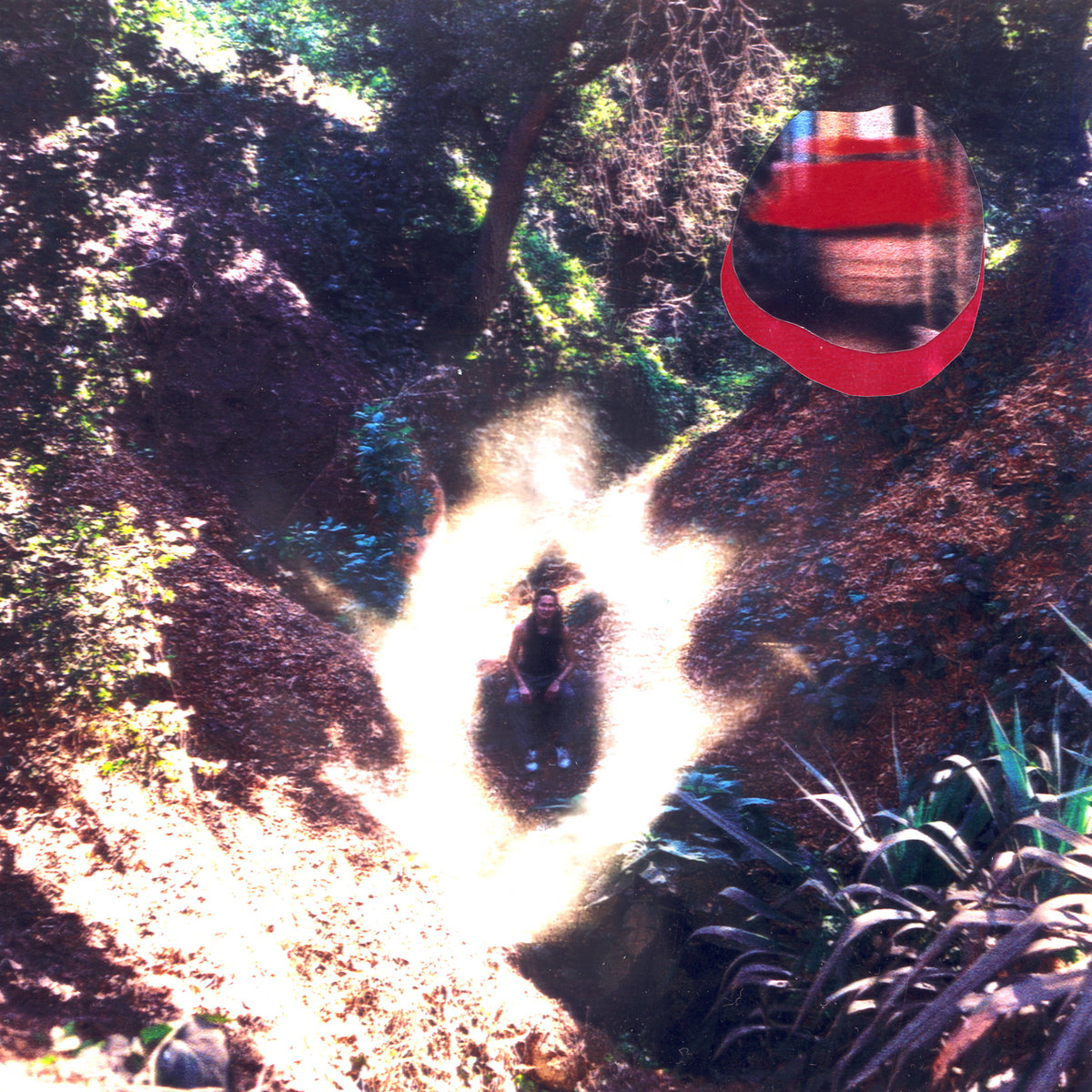 Lionmilk
Lionmilk
Intergalactic Warp Terminal 222
(Leaving Records)
For Los Angeles musician-producer Moki Kawaguchi, music isn’t just a collection of random or syncopated sounds – it’s a way of examining ourselves and working through issues that affect our quality of life. This sort of mindfulness is imprinted on his work. Just look at 2021’s I Hope You Are Well: Kawaguchi hand-delivered cassette copies to loved ones as a way of connecting with them as the pandemic raged on. It was his way of maintaining relationships at a time when ideas of social distance and remote occupations were still prevalent. He yearned for the kind of healing that can only come from tactile sensations, communal emotional associations, and the gathering together of bodies in common inclination.
Teaming up with Leaving Records, he recently shared Intergalactic Warp Terminal 222, another batch of cosmic ambience that focuses on personal development and healing. When talking about his music, Kawaguchi explains that its creation is a form of self-care, that this act of expression provides a measure of tranquility in which he can take time to assess and reorient himself. Riding waves of electronic serenity built upon the foundations of other less obvious genres (jazz, hip-hop), he established these sounds as emotional arbitrators, conductors for internal redirection and hosts of vast reservoirs of complicated revelations. He’s not afraid to dig deeper into the often-byzantine nature of our collected experiences, and this album reveals that the answers we’re looking for might well rest within the complex contours of our own subconscious.
Brussels-based project Emer is the brainchild of Lithuania-born musician Marija Rasa, a musical auteur whose work explores elements of sonic spatialization, texture, and fragility. She studied at the Institute of Sonology in The Hague and has gone on to experiment with acousmatic sounds and multichannel installations. Delicate but imbued with enormous emotional resonance, the aural landscapes she crafts are intricate and filled with teeming with the joy of life’s endless possibilities. Her latest album under the Emer moniker, Sea Salt, is a brief detour into the borderless world of electronic and pop minimalism: voices dance in the background while mesmeric rhythms drift through formless worlds of indeterminable shape and intent – and it’s all so very beautiful.
Often too dynamic to be labelled as simply ambient, and far too transparent in its execution to hold the weight of pop’s history, these songs exist as some prismatic gem of unknowable dimension. They are described as “big tunes delivered with care and much consideration”, and in that assessment (with one caveat), I would concur. I would clarify that they are “big” in emotional scope and less so regarding any overt theatricality. This music doesn’t call attention to itself; it doesn’t attempt to pummel you with concrete realizations. Instead, Rasa has shaped a galaxy of gentle swaying soundscapes in which voices are left to wander through nebulas of amorphous melody as we engage with a persistent desire to sink further into these celestial spaces.
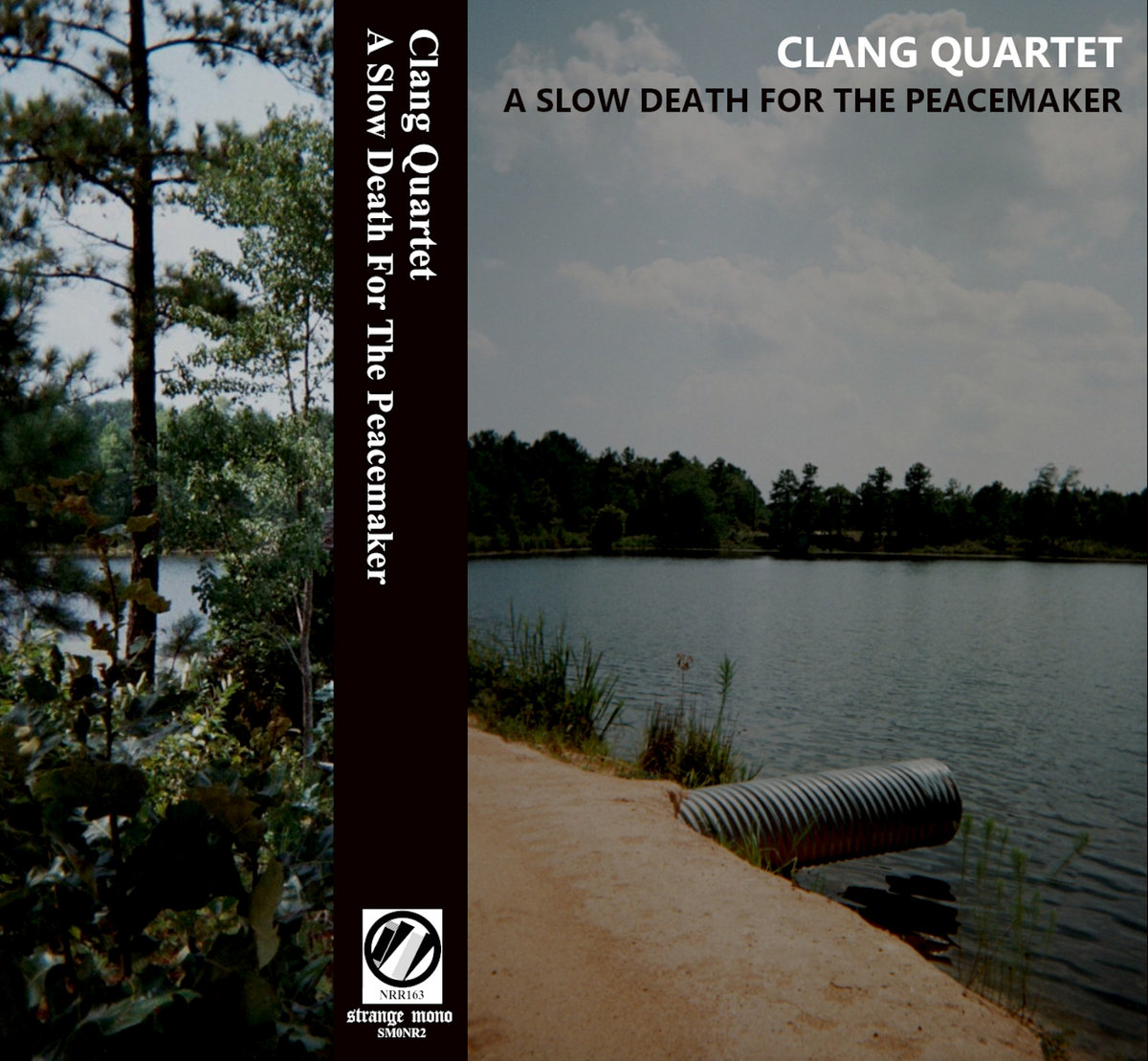 Clang Quartet
Clang Quartet
A Slow Death For The Peacemaker
(Strange Mono / No Rent Records)
North Carolina outsider musician Scotty Irving has made a career of demolishing the walls that often exist which separate the audience from a performer, as well as any notion that music is limited in its scope or emotional resonance. In the past, Irving has used street signs as percussion, metal garden tools as instruments, and a mask as a vehicle for small bells. Recording as Clang Quartet, he has long forsaken traditional means of creation in favor of utilizing whatever he had within arm’s reach. He continued to make this noise after being diagnosed with cancer, and A Slow Death For The Peacemaker is the result of that sustained search for musical authenticity, a collection of four tracks that veer between industrial noise and intense personal deconstruction.
As harrowing and metallic as these songs can be at times, Irving never loses sight of the fact that there must be relatable emotions driving these musical mutations. And coursing through this chaotic mass of notes and skewed perspectives are rivers of anger, frustration, uncertainty, and regret – and these expressions feel particularly open and raw, coming as they do in the wake of his recent health revelation. There are waves that rise and break across your senses, powerful currents that threaten to pull you out to sea, and there’s little to do but give yourself over to their tidal forces. Oblivion comes with each renewed surge, as does the opposing desire to resist its blackened infinity. It’s unclear what the future holds for Clang Quartet, though Irving remains positive about the future. What is clear is that these songs are documents from his time bracing himself against the void, gazing past its endless dark reflection to discover hope and maybe even a way forward.
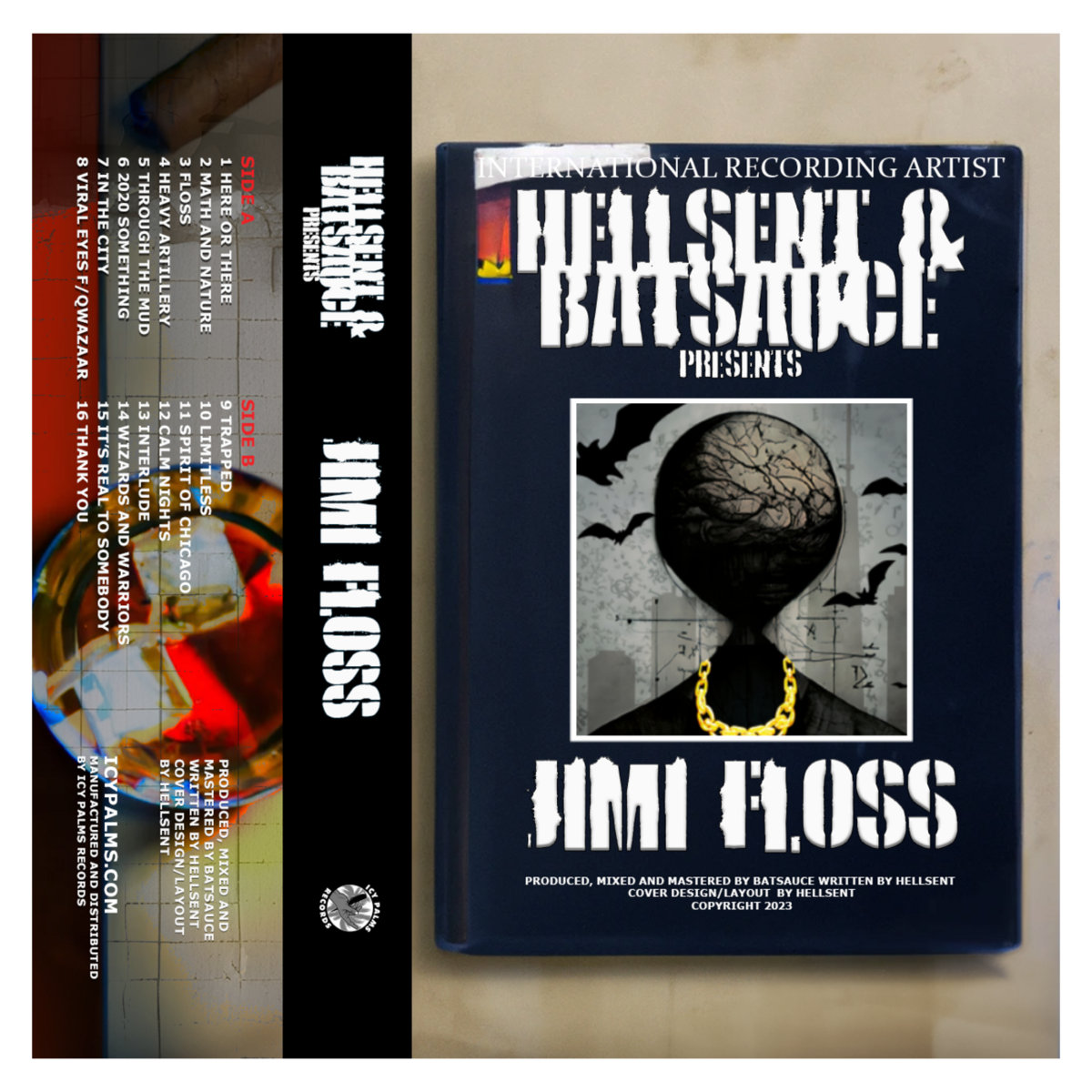 Hellsent & Batsauce
Hellsent & Batsauce
JIMI FLOSS
(Icy Palms Records)
Chicago rapper Hellsent and producer Batsauce are perfectly matched on their captivating new album, JIMI FLOSS, a deep dive into Windy City history and bitter personal experience. The songs possess an immediacy that’s as striking as their brevity. Samples whiz in and out of earshot, backed by minimalist beats and Hellsent’s conversational narratives. The world is a dark place on JIMI FLOSS, but there are moments of light that breaks through the ever-present darkness. Sounding like a missing associate of Wu-Tang Clan or an MF Doom acolyte, Hellsent attacks these bars head-on, leaving smoldering ruins in his wake. Scraps of jazzy piano and guitar abound, broken by random samples and expertly calibrated rhythmic collisions. There are also distant soul echoes spread out here, offering brief glimpses into Batsauce’s influences and the ways in which he aggregates his creative processes.
But who is Jimi Floss? Is it a stand-in for Jimmie Watkins (the man behind Hellsent) or someone personifying the events of his and Batsauce’s lives? Whatever the truth may be, this album is filled with regret, anger, and a desire to break down all the systems that work against those living on the periphery of society. These songs roar with an incendiary honesty wrought in service of a broader bitterness born from personal experience. Let it all burn and watch what rises from the ashes. Still, for all the caustic sentiment and occasional bits of braggadocio, they still leave room for some semblance of hope, an emotional connection to community and the people caught in their gravity. Things are broken, but Jimi Floss might just be the person who can shed light on these inequities and demand justice for those whose voices go unheard.
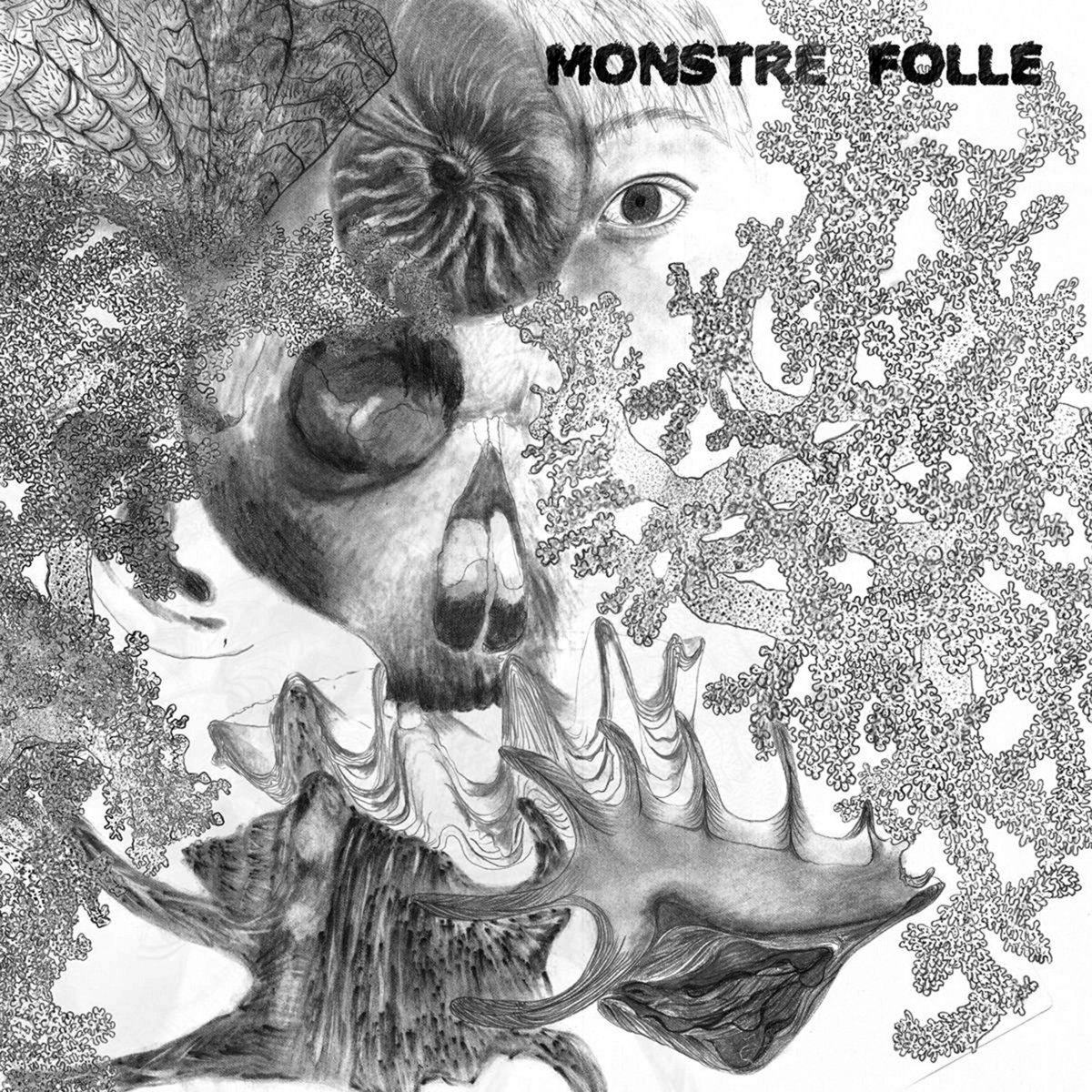 Chien Pourri
Chien Pourri
Monstre folle
(Hidden Bay Records)
Started back in 2019, Chien Pourri first came together when French musicians Maud Cazaux and Iso Couderd began developing songs based around their shared affection for artists like Portishead and Nico. Blending ethereal landscapes with austere electronic pop rhythms, they indulged in their desire to explore both darkly moody and gossamer atmospheres, culminating in the recording and release of their debut album, Monstre Folle. The album can be harsh and labyrinthine in its beauty, filled with ambient wonders and moments of jarring melodic chaos – it’s wholly experimental in its ambitions but still maintains its blissed-out (if often collapsing) pop heart. It sounds as if the songs are in a constant state of flux, with Cazaux and Couderd still trying to figure out the best way to go forward as they work through them.
But this doesn’t result in a sound that comes across as hesitant or unsure of itself; instead, this sense of spontaneity works in the music’s favor, adding further complexity to melodies which act as independent emotional regulators. “Caliban” veers between fractured ambience and stark pop intonations while “La Nuit” develops and maintains a burnished pop fluidity, a mercurial haze of soft hued tones and gentle revelations. “Yellow Sands” is a slightly noisy pop artifact, and “Tempest” bristles with droning noises and achieves a sort of transcendence through these cycling pitches. These four tracks allow Cazaux and Couderd to provide ample room for the music to bloom, expand, contract, and ebb away into the distance, a realization of the music’s constant need for adaptation and unrestricted movement.
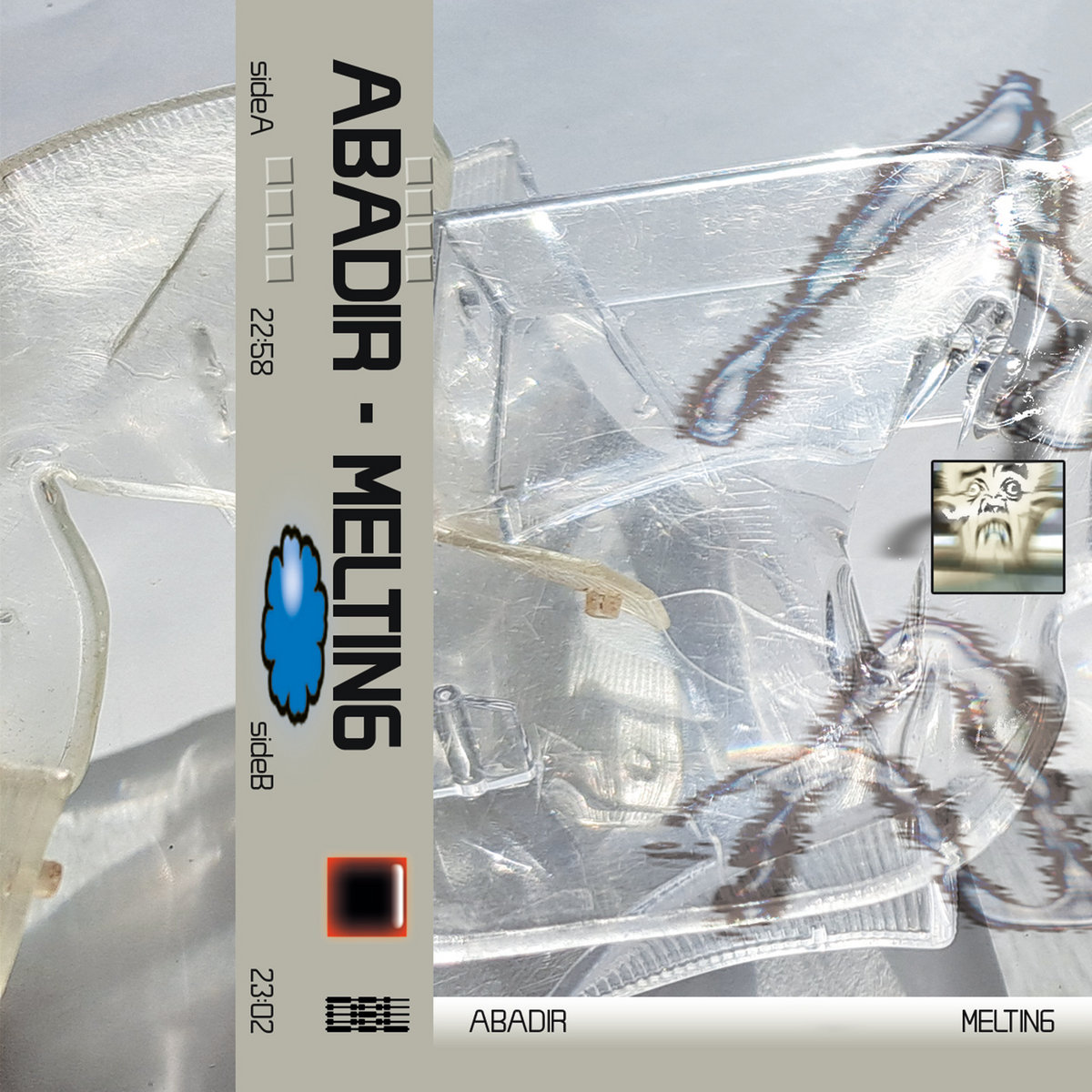 ABADIR
ABADIR
MELTING
(Drowned By Locals)
How do we reconcile the promises of capitalism with the way it consumes people, ideas, and cultures without offering much in the way of exchange? Why do we view the “good old days” through rose-colored lenses? What exactly are we lamenting, the way it actually was, or some preconceived notion of youthful optimism distanced from reality? Submitted as part of Rami Abadir’s master’s thesis at the University of Arts Bremen, Melting is an album which suggests that any positive idea of capitalist nostalgia is inherently flawed. Combining hundreds of samples from tv and radio archives, commercials, movies, and other assorted reservoirs of pop culture, ABADIR’s longform examination of people’s obsession with some glorified past is particularly relevant now as politicians and other influential people call for a return to “traditional” values and social mores.
By digging back through a pool of collective experiences and memories, he seeks to reclaim our hold on what the past actually represents and how we’ve attempted to move beyond its limited perspectives. He constructs this enormous aural panorama as though each sample were an instrument, using each to its fullest potential in service to a broader statement of intent. There’s plenty of darkness here, but it isn’t without humor or the occasional flash of light. After all, the past is not some all-consuming beast, but it should be seen without blinders or through the slant of personal reminiscence, stripped of its romanticized notions. What ABADIR manages on Melting is nothing short of remarkable, an honest glimpse into the things which shaped our world and that continues to peddle some measure of influence. It’s an historical artifact of significance that challenges our insight into our own collective histories.
Krakow musician Szymon Sapalski has been manipulating sounds for a very long time. Having previously released albums under his Rużaw moniker as well other experimental projects, he sees the fidgety movements and nervous ticks of his electronic compositions as wavelengths to be explored and dismantled. Jittery dance rhythms and glitchy hyper-pop tones shake and shudder in relative synchronicity, giving him opportunity to revel in their nervous energies. His latest album as Paszka, Lapton, a play on the way his grandmother kept misspelling the word “laptop”, grafts elements of modern pop music into a series of fractured circuital observations which tend to remain in constant motion regardless of Sapalski’s own commands.
Tempos vary, but there is an unmistakably dance-y nature to these recordings. Granted, some are liable to cause bodily injury should you attempt to match their pace, but the intent to cause some sort of physical response is evident from the opening rhythmic calamities of “jade”, a track that ushers us into this world without trying to inoculate us from the maniacal dancefloor expulsions immediately on display. The music acts as a barrage of the senses, crashing over you in unfiltered creative expression. Everything splinters and then reforms, coherent yet purposefully obstinate in revealing too much of its intentions. Lapton acts as a stream of conscious from Sapalski, a spirited electronic affirmation of music’s ability to induce tactile sensation as well as volatile emotional catharses.
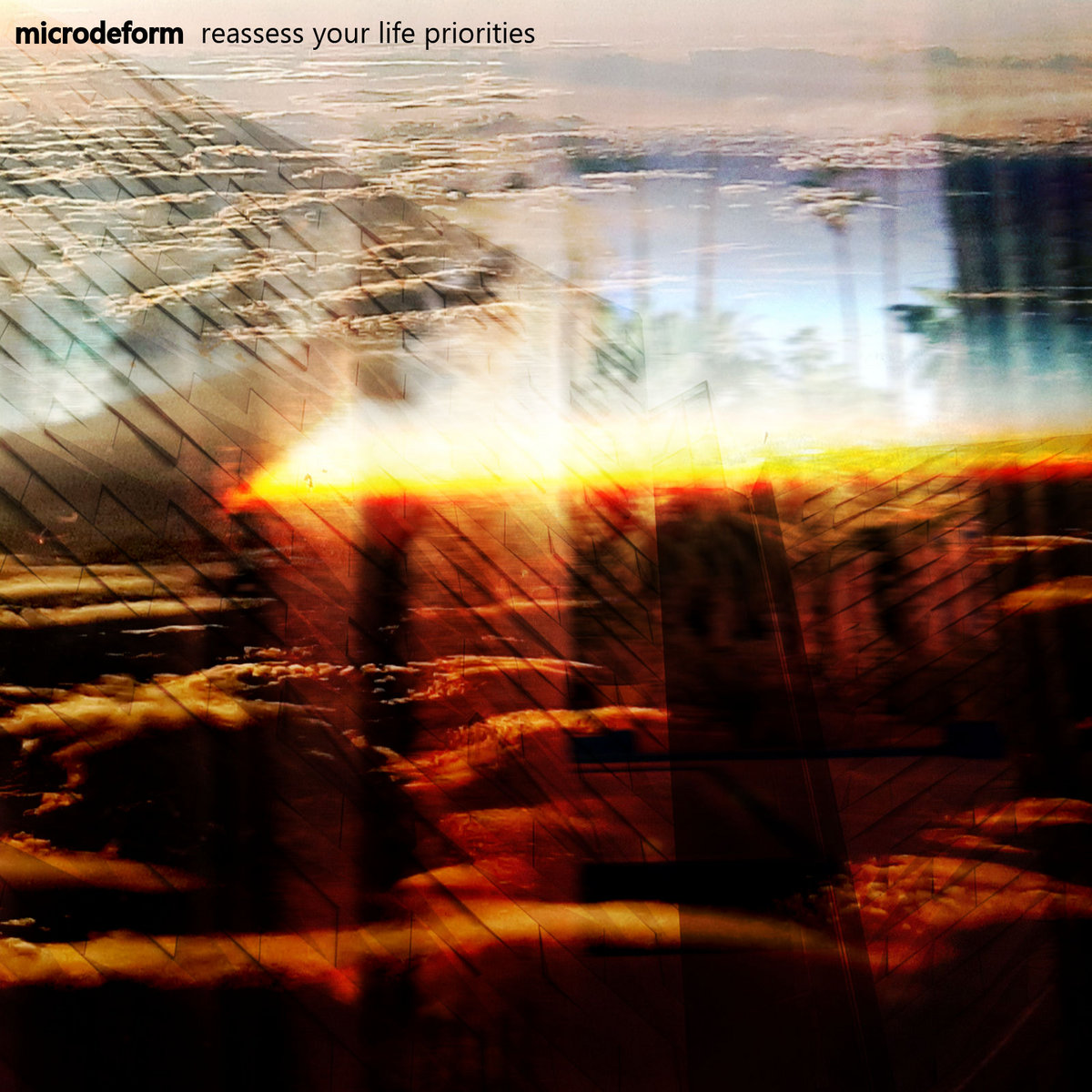 Microdeform
Microdeform
Reassess Your Life Priorities
(Liquid Library)
Back in the middle of 2020, many musicians found that they had a lot of free time on their hands due to the ongoing lockdowns surrounding the then-raging COVID pandemic – this included Liam McConaghy, the architect behind experimental noise outfit Microdeform. Looking back through his archive of unreleased material, he decided to spend that downtime collating and collaging stray bits of musical ephemera and driftwood songs. The resulting album, Reassess Your Life Priorities, is something of a loose mixtape, bringing together different periods in McConaghy’s life (pulling recordings from 2008-2016) and creating an aural record of the various musical affections and fascinations he explored during those years.
The process of reviving these older songs became somewhat therapeutic for him, allowing him time to reflect on their uniqueness while also seeing how they function in a more collaborative context. Whether leftovers from previous album sessions or snippets of live performances, McConaghy’s ability to stitch these pieces together without losing an overall cohesion is almost unbelievable. Wandering from one moment to the next, you’d never guess these sounds were pulled from different points in his life, such is their musical consistency. He glides between breezy ambient loops, intuitive dancefloor reverberations, and more dissonant melodic substructures, never losing sight of the overarching themes of reinvention and adaptation threaded throughout the album.
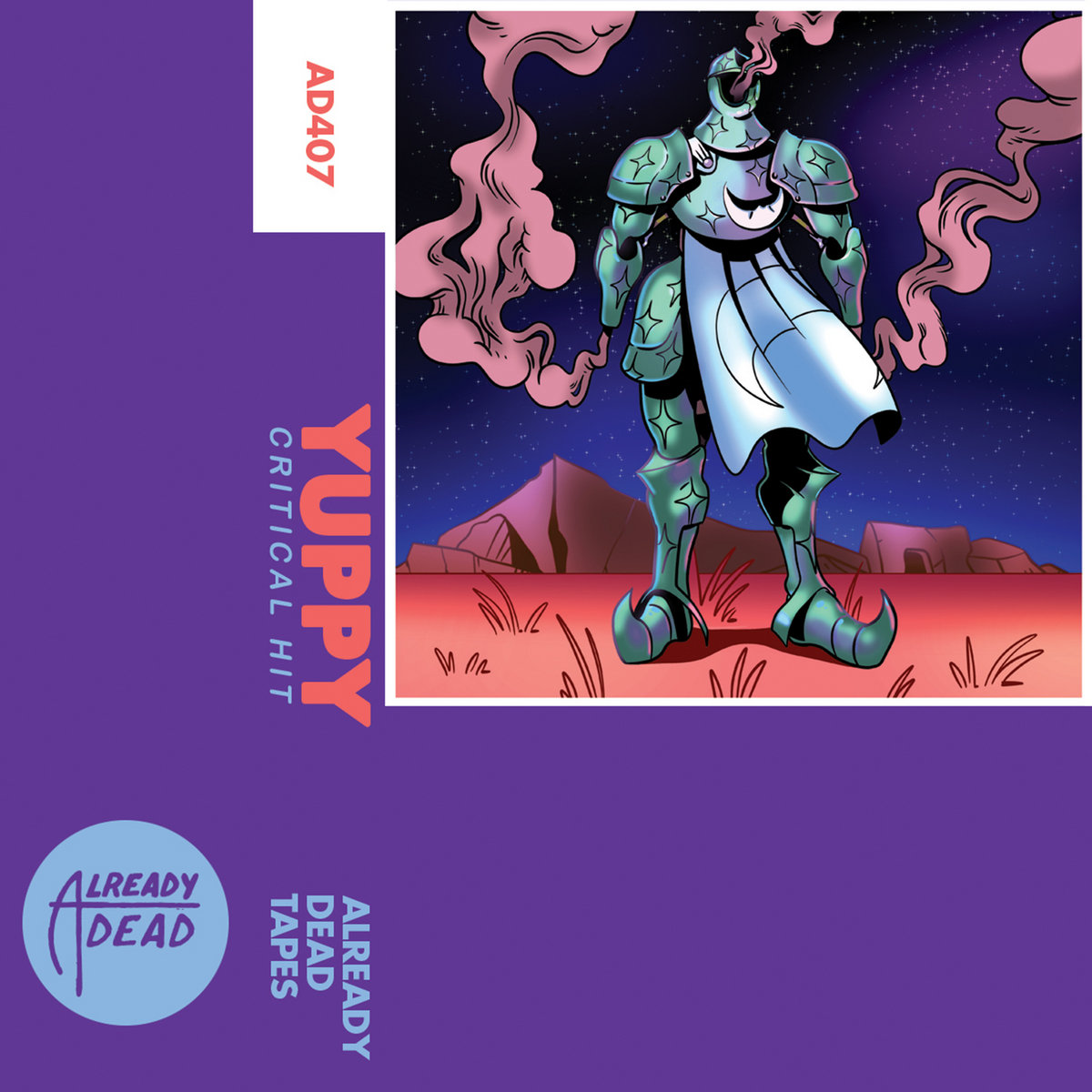 Yuppy
Yuppy
Critical Hit
(Already Dead Tapes and Records)
Balancing their attention between tangled rock interests and noisier experimentalism, the St. Louis band Yuppy are not strangers to ragged riffs and disorderly rhythms, embracing the two in their search for more raucous environments in which to peddle their knotty collaborations. Consisting of singer-guitarist Tom Gnau, bassist Jim Geoffrey, singer-guitarist Anthony Patten, and drummer Michael Highfill, the band is defined by their cooperative processes, giving each member a voice in how their songs evolve and express themselves. Their latest release, the 3-track EP Critical Hit, is equal parts psychedelic anarchy, hard rock tenacity, and scorched pop melodicism adorned with apocalyptic riffs. It’s a raucous and oddly reverent look at both their influences and the way by which they filter those inspirations into a caustic brew of wrought iron harmonies and roiling musical chaos.
“MULTI PASS” is a perfect example of how the band creates an equilibrium between the craggier aspects of their work and those which tend toward the more melodic, while also being what I hope is a passing reference to The Fifth Element. The guitars sound corrugated and muscular, even as they seem to break apart mid-song. “No” dives right back into a frenzied guitar explosion, eventually settling into a buoyant pop-rock swing before circling back around and leaving ruined landscapes in its wake. They close out the EP with “Ear Drummer”, a track that harkens back to post-punk’s angular aesthetics, mixing soaring vocal lines with bombastic riffs and staticky background ambience. If you’re looking for the perfect entry point into their wonderfully unruly rock theatrics, just listen to Critical Hit and know that you’ll be spending quite a lot of time in their orbit.

